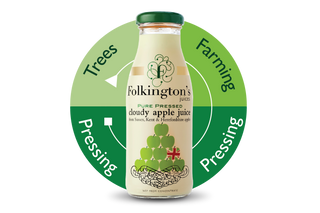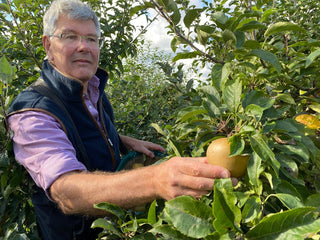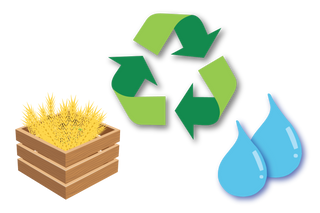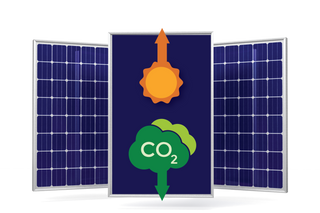
APPLE JUICE
Find out how Folkington's and its suppliers are making a conscious effort to make a positive impact on the environment and the climate at every stage of the journey from tree to bottle, when producing our English apple juice.
LOCAL APPLE PICKING
Every year in September, the Folkington's team spend time picking Heritage Russet apples at a local orchard.
Click below to watch a short video of our last visit.
LOCAL APPLE PICKING
Every year in September, the Folkington's team spend time picking Heritage Russet apples at a local orchard.
Click below to watch a short video of our last visit.

TREES
We only use English-grown Russet and Jonagold variety apples grown by Red Tractor certified farms in Kent, Sussex and the Three Counties, pressed in Herefordshire and bottled in Glamorgan, Wales.
- REDUCED FOOD MILES by using only English apples instead of apples from overseas.

FARMING
A significant proportion of our heritage Russet apples are picked from pollinator trees that are normally left unpicked to drop and decompose. This creates food waste and greenhouse gases, so we step in and pick these apples to use in our juice.
- REDUCED FOOD WASTE AND GREENHOUSE GAS EMISSIONS
from otherwise decomposing fruit.

PRESSING
Surplus water from the pressing factory is recycled and re-used to irrigate surrounding blackcurrant fields. Waste materials from pressing, such as the core and skin, are re-used by converting into animal feed.
- RECYCLED & RE-USED surplus water and waste materials from pressing.

PRESSING - POWER
CO2e emissions from the introduction of LPG into the pressing facility have reduced by 16%, and 22% of electricity used for pressing the fruit is now from renewable sources (solar panels).
- REDUCED CO2e EMISSIONS and use of renewable sources of power

PRESSING - STORAGE
Juice is stored in re-usable containers (Octoboxes) instead of traditional steel or plastic drums which reduces the CO2e cost of packaging the juice by 92%. The resulting reduced product storage per m2, compared with steel drums, reduces storage CO2e emissions by 36%.
- RE-FILLABLE & REDUCED storage containers.

